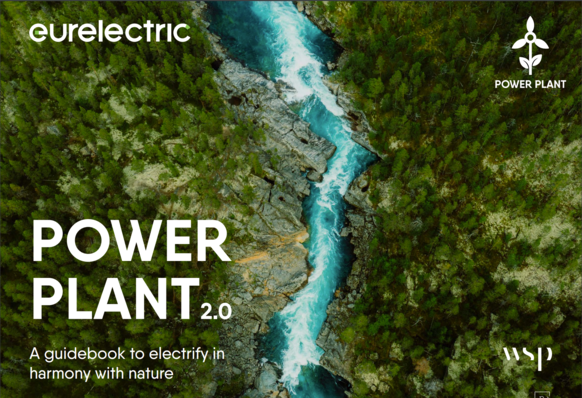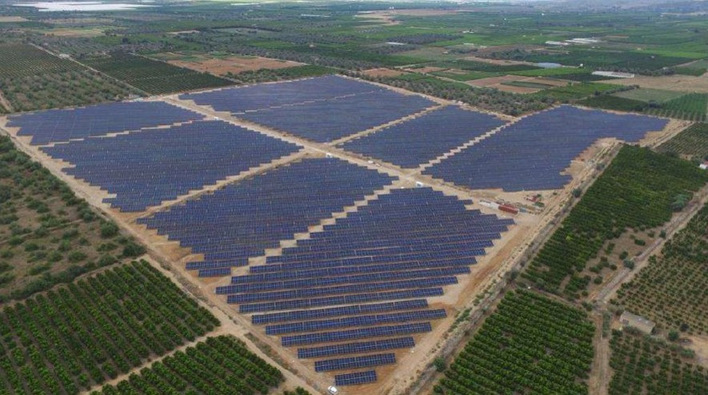Eurosolar calls for the immediate implementation of prioritized and highly accelerated local, regional and national renewable energy transformation actions, to move our towns, cities, region and countries onto a 100% renewable footing, in decentralised way. The transformation of Europe has a paramount priority – the current targets ranging from 40% emissions reduction by 2030 (EU), or coal exit by 2038 (Germany) are too slow and unfocused to deliver in a much shorter timeframe than currently envisioned a fully renewable economy, based on decentralised, largely local resources.
Recent grid attacks and blackouts as wake up call
“The fossil energy crises – from conventional oil depletion to nuclear catastrophes to the unfolding climate chaos – have been made even more urgent through the ease with which military assaults can be levelled against centralised power grids. A cyberwar is escalating between various countries, most visibly between the Unites States and Russia. It entails attacking national power grids and vital installations: thermal power plants, hospitals, airports, military installations, water systems and the wider economy and society at large”, Peter Droege, President of Eurosolar says.
“Grid attacks in the Ukraine, but also unidentified outages in Venezuela and, most recently, the blackouts of early Sunday morning, 16 June 2019, local time across South America demonstrate the capability of cyber warfare to bring entire countries and continents to their knees. The capacities increase in sophistication and aggression, and can easily spiral out of control. Because cyber warfare is falsely regarded as less harmful than an all-out war by conventional or nuclear forces decision-making its decisionmaking is also delegated to lower ranks – such as the US State Secretary of Defense”, Droege says.
Massive security threat emanating from outdated energy systems
This is only part of the massive security threat emanating from our outdated energy systems: climate change has long threatened nuclear and coal fired power plants and old-fashioned centralised power grids through droughts and heat waves – and yet, little has been done when compared to the enormous economic and employment benefits that have been proven to result from a full turn to renewable energies. The fact that Eurosolar’s central messages over the past 30 years have become world-wide wisdom at every level of society - yet still ignored at peril by too many national governments and international bodies - is evident in a letter to the New York Times by New Hampshire local resident Scott Fordin on 16 June 2019:
We need to transition our electrical power generation and distribution infrastructure from a centralized fossil-based model to a far more localized and flexible renewables-based model. There are many problems with our current centralized model, including but not limited to:1) Exposure to single focuses of attack that could bring down large sections of the country in a single blow. 2) Massive plant construction costs that make it impossible to move, rebuild, or upgrade generation methods as needs or technologies change. 3) Massive transmission losses of energy through thousands of miles of transmission lines. 4) Negative environmental impacts from burning fossil fuels, piling up nuclear waste, and all those transmission lines. 5) Negative security impacts from military engagements to secure fossil fuel sources around the world.
By contrast, smaller clusters of renewables-based smart grids could provide many benefits, including but not limited to: 1) Unlike fossil and nuclear, renewable sources, like solar and wind, lend themselves to localized production and distribution. 2) A localized model means greater flexibility in terms of plant construction and maintenance. 3) Localized “smart” grids could enable the dynamic redistribution of energy based on the immediate needs of a region. 4) Multiple points of attack mean less risk of bringing down large swaths of the country at once. 5) Better for the environment. 6) Less military. 7) Jobs! Jobs! Jobs!
Forgotten U.S. report from 1980
FEMA, the United States Federal Emergency Management Agency issued already in 1980 a report calling for a nation-wide renewable energy strategy, in response to military, Peak Oil and climate threats, called 'Dispersed, Decentralized and Renewable Energy Sources: Alternatives to National Vulnerability and War.' In a political environment shaped by the interest of those very companies that make their living from fossil fuels, the report was soon shelved, ignored and forgotten – as have many others since. We must finally wake up to the fact that by ignoring warnings for almost half a century the crises and fossil energy risks have mounted, escalated and threaten to spin out of control – while there are only benefits to a turn to renewable energy. (HCN)
Stay informed, get our free newsletter twice a week. Register here







